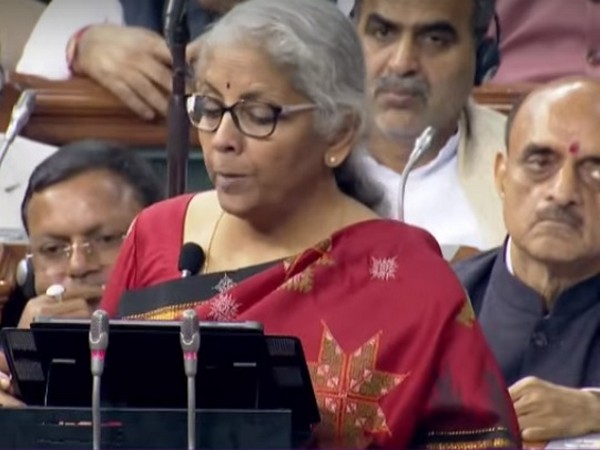
Sitharaman Tables New IT Bill Virtual Assets Like Crypto Defined Under Income From Other Sources
The government on Thursday tabled the New Income Tax Bill, 2025, which aims to simplify tax laws, modernize definitions, and provide more clarity on various tax-related matters.
This new bill, tabled in Lok Sabha by Finance Minister Nirmala Sitharaman, seeks to replace the existing Income Tax Act, 1961 and introduce changes that affect different categories of taxpayers, including individuals, businesses, and non-profit organizations.
After presenting the income tax bill the Finance Minister asked Lok Sabha Speaker to nominate members for a standing committee to reviewing the newly tabled income tax bill
One of the significant changes in the new bill is the introduction of simplified language and modern terminology. It replaces outdated terms and brings in new ones to align with today’s economy.
For example, it introduces the term “tax year” instead of the existing terms like financial year and assessment year systems. It also defines “virtual digital asset” and “electronic mode”, reflecting the growing importance of digital transactions and cryptocurrency in today’s financial landscape.
In terms of scope of total income, the new bill makes certain clarifications while maintaining the existing tax principles. Under the previous law, Sections 5 and 9 of the Income Tax Act, 1961, stated that Indian residents were taxed on their global income, while non-residents were taxed only on the income they earned in India.
The new bill, in Clauses 5 and 9, retains this rule but provides a clearer definition of deemed income, such as payments made to specific individuals, making tax rules more transparent for non-residents.
The bill also brings changes to deductions and exemptions. Earlier, Sections 10 and 80C to 80U of the Income Tax Act, 1961, allowed deductions for investments, donations, and specific expenses.
The new bill, under Clauses 11 to 154, consolidates these deductions and introduces new provisions to support startups, digital businesses, and renewable energy investments.
Changes have also been made to the term capital gains tax. Under the previous law, Sections 45 to 55A categorized capital gains into short-term and long-term based on holding periods, with special tax rates for securities.
The new bill, in Clauses 67 to 91, keeps the same categorization but introduces explicit provisions for virtual digital assets and updates beneficial tax rates. This ensures that digital assets, such as cryptocurrency, are covered under a proper tax framework.
For non-profit organizations, the previous law, under Sections 11 to 13, provided income tax exemptions for certain charitable purposes but had limited compliance guidelines.
The new bill, in Clauses 332 to 355, establishes a more detailed framework, clearly defining taxable income, compliance rules, and restrictions on commercial activities. This introduces a stricter compliance regime while also providing well-defined exemptions.
Overall, the Income Tax Bill, 2025 aims to simplify tax laws, encourage digital and startup investments, and bring greater clarity in taxation policies for businesses and non-profits.
The government believes these changes will make tax compliance easier while ensuring a fair tax structure for all categories of taxpayers. (ANI)

MEA Sets Up Special Control Room Amid West Asia Crisis; Releases Helpline Numbers For Gulf

Iran’s IRGC Claims Control Of Strait of Hormuz, Warns Ships Of Risk From Missiles And Drones

‘Good Friends’: Manickam Tagore Hints At Accepting DMK Alliance For Tamil Nadu Polls
